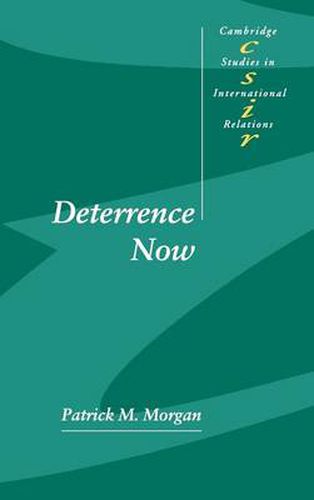Readings Newsletter
Become a Readings Member to make your shopping experience even easier.
Sign in or sign up for free!
You’re not far away from qualifying for FREE standard shipping within Australia
You’ve qualified for FREE standard shipping within Australia
The cart is loading…






Patrick Morgan’s authoritative study revisits the place of deterrence after the Cold War. By assessing and questioning the state of modern deterrence theory, particularly under conditions of nuclear proliferation, Morgan argues that there are basic flaws in the design of the theory that ultimately limits its utility. Given the probable patterns of future international politics, he suggests that greater attention be paid to ‘general’ deterrence as opposed to ‘immediate’ deterrence and to examining the deterrent capabilities of collective actors such as NATO and the UN Security Council. Finally he contends that the revolution in military affairs can promote less reliance on deterrence by retaliatory threats, support better collective management of peace and security and permit us to outgrow nuclear and other weapons of mass destruction. This new major work builds upon Patrick Morgan’s landmark book, Deterrence (1983).
$9.00 standard shipping within Australia
FREE standard shipping within Australia for orders over $100.00
Express & International shipping calculated at checkout
Patrick Morgan’s authoritative study revisits the place of deterrence after the Cold War. By assessing and questioning the state of modern deterrence theory, particularly under conditions of nuclear proliferation, Morgan argues that there are basic flaws in the design of the theory that ultimately limits its utility. Given the probable patterns of future international politics, he suggests that greater attention be paid to ‘general’ deterrence as opposed to ‘immediate’ deterrence and to examining the deterrent capabilities of collective actors such as NATO and the UN Security Council. Finally he contends that the revolution in military affairs can promote less reliance on deterrence by retaliatory threats, support better collective management of peace and security and permit us to outgrow nuclear and other weapons of mass destruction. This new major work builds upon Patrick Morgan’s landmark book, Deterrence (1983).